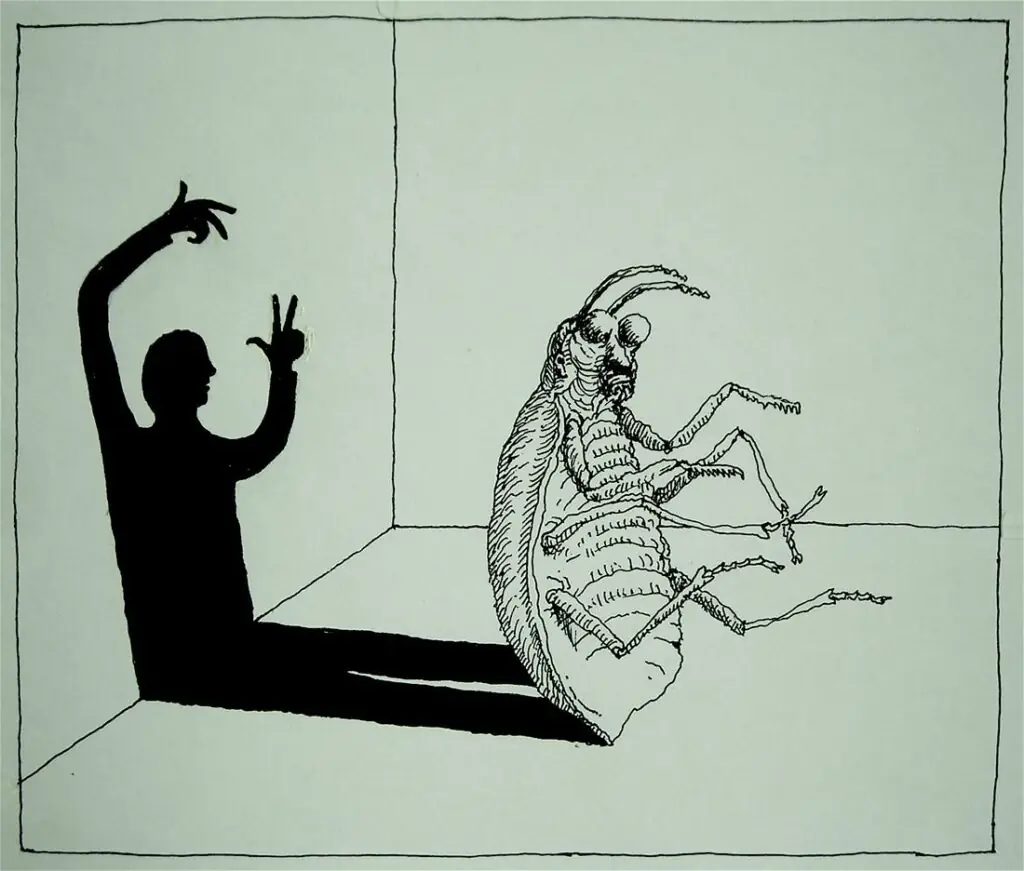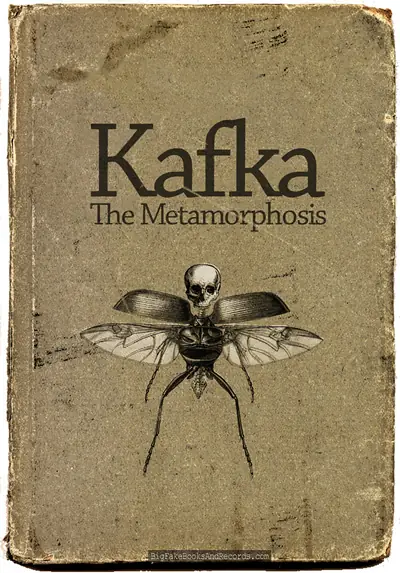“The Metamorphosis” is a novella written by Franz Kafka, first published in 1915. It is one of the most famous and influential works of 20th-century literature, exploring themes of alienation, existential anxiety, guilt, and absurdity.

✅ AI Essay Writer ✅ AI Detector ✅ Plagchecker ✅ Paraphraser
✅ Summarizer ✅ Citation Generator
Detailed Overview
The story begins with a traveling salesman, Gregor Samsa, waking up to find himself transformed into a gigantic insect. The narrative delves into Gregor’s psychological reactions to his transformation and the subsequent impact on his family. As Gregor struggles to adapt to his new condition, his family’s reactions range from sympathy to horror and eventual disdain, reflecting broader themes of human isolation and alienation.
Extensive Plot Summary
Chapter 1: Gregor Samsa awakens to discover his metamorphosis into an insect. He reflects on his life and his demanding job, which he loathes but cannot abandon due to his family’s financial dependence on him. His transformation makes him late for work for the first time, attracting his manager’s suspicion. When Gregor fails to open his bedroom door, both his manager and family become concerned. Upon seeing his transformed body, they are horrified.
Chapter 2: Gregor adapts to his new physicality, developing a taste for rotten food and crawling on walls and ceilings. His sister, Grete, shows some compassion by feeding him and cleaning his room. However, the family is repulsed by Gregor’s appearance, and they confine him to his room, stripping away his humanity.
Chapter 3: The family’s financial situation worsens, forcing them to take in lodgers. Gregor’s existence becomes increasingly burdensome, and his health deteriorates. One evening, he ventures out of his room, which leads to chaos and distress among the lodgers. After this incident, Grete convinces her parents that Gregor must be gotten rid of. That night, Gregor, understanding his family’s suffering and accepting his alienation, dies. His death brings a sense of relief and new hope to his family, who decide to move to a better apartment.

Insights
Kafka’s narrative delves deep into themes of isolation, identity, and dehumanization. Gregor’s transformation can be seen as a metaphor for alienation and loss of humanity, reflecting the individual’s struggle against an indifferent society. The family’s reaction underscores the fragility of human relationships, as their initial concern gives way to self-interest and abandonment.
Notable Quotes
- “As Gregor Samsa awoke one morning from uneasy dreams he found himself transformed in his bed into a gigantic insect.”
- “I cannot make you understand. I cannot make anyone understand what is happening inside me. I cannot even explain it to myself.”
Suggestions for Similar Books
- “The Trial” by Franz Kafka: Offers a similar exploration of alienation and bureaucratic absurdity, focusing on a man arrested and prosecuted by a remote, inaccessible authority.
- “No Longer Human” by Osamu Dazai: Chronicles the life of a man estranged from society and his descent into despair, echoing themes of isolation and the struggle for understanding.
- “Notes from Underground” by Fyodor Dostoevsky: Presents a deep dive into the mind of an isolated, resentful individual, exploring complex themes of freedom, society, and self-loathing.
In summary, “The Metamorphosis” is a profound commentary on the human condition, exploring how identity and personal value can be contingent on one’s utility and conformity to societal norms. Kafka’s work remains enduringly relevant, offering insight into the nature of existence and the often arbitrary barriers that define our place in the world.
Follow us on Reddit for more insights and updates.






Comments (0)
Welcome to A*Help comments!
We’re all about debate and discussion at A*Help.
We value the diverse opinions of users, so you may find points of view that you don’t agree with. And that’s cool. However, there are certain things we’re not OK with: attempts to manipulate our data in any way, for example, or the posting of discriminative, offensive, hateful, or disparaging material.